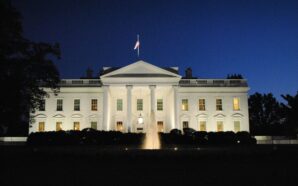

Credit’: Unsplash
U.S. Stresses Peace and Humanitarian Aid in Israeli-Palestinian Conflict
In an exclusive interview aired on Sunday, President Joe Biden underscored his belief in the need to establish a Palestinian state while urging for the neutralization of Hamas, the Palestinian militant group. The interview, taped on Thursday for CBS’ “60 Minutes” and aired Sunday evening, sheds light on the United States’ stance regarding the ongoing Israeli-Palestinian conflict.
Historically, the U.S. has been a staunch ally of Israel, but it has also endorsed a two-state solution, which envisions a separate Palestinian state alongside Israel. The overlapping claims over the holy city of Jerusalem have long been a source of contention, complicating coexistence between Israelis and Palestinians. U.S. presidents have made various attempts to broker a two-state solution in the Middle East over the years.
President Biden emphasized in the interview that while it is imperative to neutralize Hamas, the group does not represent the entirety of the Palestinian population. He cautioned against Israel occupying Gaza again, emphasizing the need for a Palestinian Authority and a path to a Palestinian state.
These sentiments were echoed by White House national security advisor Jake Sullivan, who emphasized the importance of protecting innocent civilians, including the vast majority of the population of Gaza who have no affiliations with the militant organization Hamas. Sullivan stated that these individuals deserve dignity, safety, and security.
“It's also a priority for me to urgently address the humanitarian crisis in Gaza…We can't lose sight of the fact that the overwhelming majority of Palestinians had nothing to do w/ Hamas & the appalling attacks.”
Absolutely critical words from @JoeBiden. pic.twitter.com/VbHSHbZfCm
— Kaivan Shroff (@KaivanShroff) October 13, 2023
The recent escalation of tensions between Israel and the Palestinian territories erupted after Hamas executed a deadly attack on October 7, claiming over 1,400 lives in Israel. In response, Israel launched a counteroffensive that has resulted in the deaths of at least 2,600 people in Gaza, with many local authorities reporting civilian casualties.
The situation in Gaza, under Hamas control since 2007, has evolved into a dire humanitarian crisis, leaving numerous civilians, including American citizens, stranded without access to essential necessities such as food, water, medical services, and shelter.
In response to these developments, the U.S. initially expressed support for Israel’s actions to defend itself and has since mobilized resources and humanitarian aid.
President Biden reiterated that he does not deem it necessary to deploy U.S. military troops to bolster Israel’s counteroffensive.
This ongoing situation in the Middle East remains a pressing concern for the global community as efforts continue to address the complex dynamics and humanitarian consequences of the conflict.
Scotland’s First Minister Offers Help to Gaza Refugees
-
China’s foreign minister Wang Yi has strongly refuted NATO’s accusations that Beijing is aiding Russia in its war on...
-
The highly anticipated wedding of Anant Ambani, the son of Asia’s richest man Mukesh Ambani, is set to culminate...
-
President Joe Biden faced a critical moment on Tuesday as he secured his position for the Democratic nomination amidst...
-
The Federal Reserve announced today that all 31 banks participating in its annual stress test have demonstrated their ability...
-
Turkey has unexpectedly backed Greece in its ongoing effort to reclaim the Elgin Marbles from the United Kingdom, describing...
-
The Biden administration has announced sanctions against the Israeli group “Tsav 9” for obstructing humanitarian convoys to Gaza. The...
-
Turkey’s inflation rate has soared past 75% in May, marking what economists believe to be the peak of the...
-
As the November election looms, immigration and border policy are hot topics for voters like Laura Grant, an insurance...
-
Iranian authorities have confirmed that President Ebrahim Raisi and seven other officials were killed in a helicopter crash on...
-
As the United States continues its support for Ukraine, FBI officials are closely monitoring the possibility of increased Russian...
-
As the clock ticks down to the pivotal election, America finds itself navigating a political minefield, with both parties...
-
Presight, an Abu Dhabi-based artificial intelligence firm, has finalized the acquisition of a 51% stake in AIQ, a prominent...




















